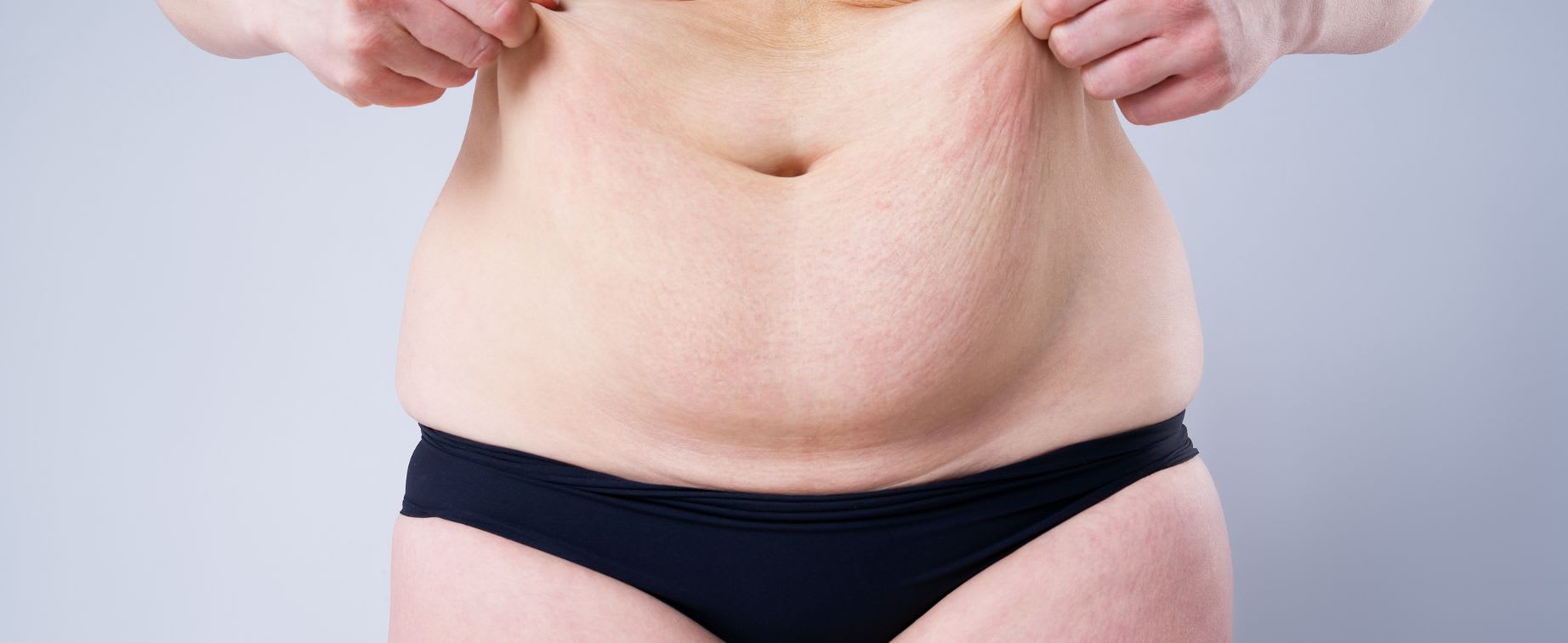Losing weight can transform your life in amazing ways. Eating better, moving more, and shedding excess pounds leads to improved health and energy. However, many dieters experience an unexpected side effect after dropping a substantial amount of weight: loose, sagging skin that seems reluctant to snap back into place. While loose skin should never deter anyone from achieving their weight loss goals, it can be an unpleasant surprise.
In this article, we explore whether weight loss really does lead to loose skin, what factors cause loose skin after weight loss, and natural remedies and medical procedures that can help tighten and tone loose skin.
Does Weight Loss Lead to Loose Skin?
As the body's largest organ, your skin forms a protective barrier between you and the outside world. Just below the surface, the dermis contains collagen and elastin fibers that give skin its firmness and elasticity. 1 These proteins allow your skin to stretch as your body grows and then snap back into place. 2
However, when skin is stretched quickly and substantially due to rapid weight gain, the collagen and elastin fibers can't keep up. They become overextended and damaged. Then, if the weight is lost again, the skin can't retract properly. This leaves loose, sagging skin behind. The more dramatic the weight fluctuations, the looser the resulting skin will be. 2
What Causes Loose Skin After Weight Loss?

Our skin stretches naturally as we gain weight to accommodate the excess pounds. However, this gradual stretching can cause damage to the collagen and elastin fibers in our skin, impairing its ability to snap back when the weight comes off. For those who lose a large amount of weight, this often results in loose, sagging skin that does not reflect the new, slimmer body underneath. 3
Excess skin is most common on the abdomen, breasts, upper arms, thighs, and buttocks after major weight loss. 3 While some degree of loose skin is normal and to be expected, several factors can influence how much remains:
- Age: As we get older, our skin produces less collagen, the protein that gives skin its elasticity. This means older skin has a harder time bouncing back after being stretched from weight gain and loss.
- Sun exposure: Exposure to the sun also plays a part, as it can damage the skin's collagen networks and elastin production, further contributing to loose skin.
- Smoking: Smoking has been linked to decreased collagen production and damage to existing collagen, which can result in excess skin. Prolonged smoking can impact various areas of the face, affecting the thickness of the epidermis, dermis, and nasolabial folds. 3
Natural Ways to Tighten Loose Skin After Weight Loss
Natural remedies can work for those who have lost small to moderate amounts of weight and do not have excessively loose skin. For people with a lot of loose skin after major weight loss, these remedies may not eliminate the excess skin completely but can still improve its appearance.
- Patience: The body needs time to gradually adapt and tighten loose skin. It's natural to want fast results, but allowing the skin to reshape itself over several months is important.
- Hydration and nutrition: A well-balanced, hydrating diet supports skin health. Consuming nutrient-rich foods high in vitamin C and collagen can enhance elasticity. Proper hydration keeps the skin supple.
- Exercise: Strength training can build muscle to fill out loose skin. Cardio improves circulation for healthier skin. Both aid weight maintenance, so new weight gain doesn't reverse progress. 4
Medical Treatments to Tighten Loose Skin After Weight Loss

While exercise and nutrition can help tighten skin over time, medical treatments may provide a more noticeable improvement for those with a lot of excess skin. There are several options for tackling loose skin, ranging from minimally invasive office procedures to full surgical body contouring.
- Body contouring: If you have dramatic loose skin after losing a substantial amount of weight, body contouring surgery can remove the excess tissue and improve your appearance. These procedures include upper body lifts like breast lifts and arm lifts as well as lower body lifts like tummy tucks, thigh lifts, and buttock lifts.
- Polydioxanone (PDO) threads: These threads are inserted like sutures under the skin of the face, chest, knees, and buttocks to provide internal support and lift sagging areas. The threads encourage collagen production over several months which helps slow down the skin loosening process.
- Radiofrequency: This in-office procedure delivers electromagnetic energy to heat up tissue and stimulate collagen remodeling. It can be used to tighten small areas of skin like the face.
- Ultrasound therapy: This in-office procedure sends sound waves deep into the skin to have a collagen-building effect. It is often used on facial skin after weight loss surgery. 3
Conclusion
While loose skin after weight loss can be an unwanted side effect, do not let it discourage you from continuing your weight loss journey. The rewards of improved health, increased mobility, and a boost in confidence far outweigh the inconvenience of excess skin.
If loose skin does bother you, know that there are solutions. Talk to your doctor about procedures to remove excess skin surgically. There are also natural remedies that can help tighten skin over time.
The content in this article is intended for informational purposes only. This website does not provide medical advice. In all circumstances, you should always seek the advice of your physician and/or other qualified health professionals(s) for drug, medical conditions, or treatment advice. The content provided on this website is not a substitute for professional medical advice, diagnosis, or treatment.






